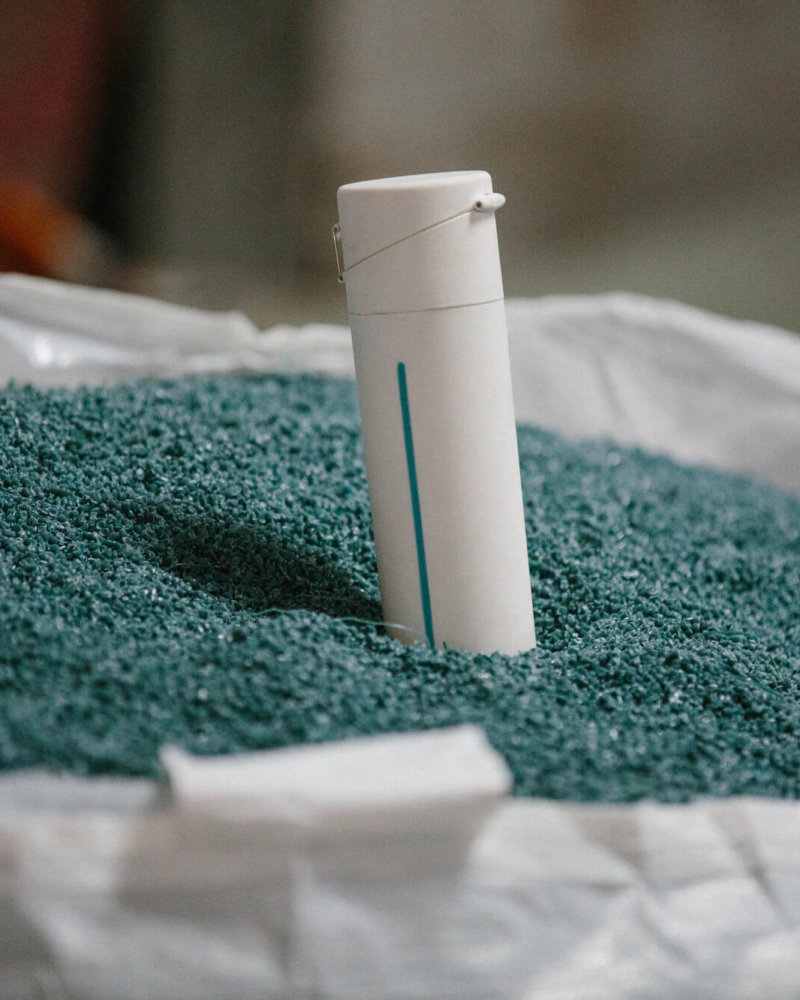
- Better Society -
- 5mins -
- 957 views
The plastic bank: How turning plastic trash into cash could save our oceans
Cash for trash — Could Plastic Banks solve the problem of ocean plastic pollution and end extreme poverty at the same time?
How Plastic Banks are solving ocean plastic pollution and extreme poverty at the same time
That’s the ambitious goal of The Plastic Bank: a worldwide chain of stores where everything from school tuition to phone credit and electricity is available for purchase in exchange for plastic trash. They believe the only way to stop ocean plastic is to reveal the value in plastic by transferring as much of that value as possible directly into the hands of the collectors.
The plastic packaging problem
Around 8 million tons of plastic end up in the oceans each year, with reportedly 80% coming from countries with extreme poverty. According to a 2017 report by Ocean Conservancy, five Asian countries; China, Indonesia, Philippines, Thailand and Vietnam, dump more into the oceans than the rest of the world combined.
The best way to cut plastic waste is to cut consumption, but this might be the hardest habit for consumers in Asia to kick. According to Green Earth, Hong Kong alone goes through 5.2 million plastic water bottles per day. From street vendors in Vietnam and Thailand to widespread food-delivery services throughout Asia, the amount of plastic used is phenomenal.
Last year, a third of the 1.67 million tons of domestic waste disposed in Singapore consisted of packaging waste, primarily plastic bags and food packaging. The amount is enough to fill more than 1,000 Olympic-size swimming pools.
In places like China and Vietnam, food and beverages are often packed directly into plastic bags as an easy form of transportation. It’s unlikely the habit can change overnight, though many vendors are happy to drop food or produce into your own container.
But isn’t just an Asia problem. Plastic is one of the greatest environmental challenges facing the whole world. The US wasted about 33.6 million tons of plastic, and only 9.5% was recycled.
Source: Forbes.com

The Plastic Bank: monetising waste while improving lives
That’s definitely the ambitious goal of social enterprise The Plastic Bank: a worldwide chain of stores where a whole range or goods and services are available for purchase in exchange for plastic trash.
It is The Plastic Bank’s mission to stop Ocean Plastic by gathering a billion people together to monetise waste while improving lives.
The Plastic Bank is a root cause solution to prevent the flow of plastic into our oceans. They believe the only way to stop ocean plastic is to reveal the value in plastic by transferring as much of that value as possible directly into the hands of the collectors. Collectors can convert the plastic either into cash or other goods, such as cooking fuel, or vouchers that pay for schooling or mobile phone charging.
By enabling the exchange of plastic for money, items or Blockchain secured digital tokens, they reveal the value in plastic. This empowers recycling ecosystems around the world and stops the flow of plastic into our oceans. All while helping people living in poverty build better futures.
The Plastic Bank creates social and environmental impact in areas with high levels of poverty and plastic pollution by turning plastic waste into a currency. To do this, The Plastic Bank provides a consistent, above-market rate for plastic waste, thus incentivising its collection. Individuals who gather the plastic can trade it for money, items or services.
(Below: Plastic Bank co-founder David Katz holds a TED Talk in which he outlines his aim to create a circular economy)
Source: PlasticBank.org
Opportunities for local entrepreneurs to set up shops for the poor using plastic waste as currency
The Plastic Bank also provides the ability for local entrepreneurs to set up and operate a convenience store for the poor, in which plastic waste is the currency.
Plastic collected through The Plastic Bank is recycled and sold at a premium as Social P-lastic®. The value of Social Plastic® goes beyond the commodity price of plastic: a ladder of oppportunity is created for the world’s poor by providing access to income, goods and services and plastic is kept out of the ocean.
Collectors bring trash from wherever they can find it. The trash is then sorted, shredded and sold to big brands who reuse Social Plastic® in their products. This includes some of the largest companies on the planet. Already, six participants – including Mars, M&S and PepsiCo – have pledged to use 100% reusable, recyclable or compostable packaging by 2025 at the latest.
Currently, in Haiti, there are over 2,000 collectors, with 30 plastic markets. Total amount of plastic recycled over the past three years: 7 million pounds/ 3.2 million Kg.
The partners are planning to expand to other markets in 2018, including Ethiopia, India, Indonesia and Brazil, and Plastic Bank is set to announce links with other fast-moving consumer goods companies, to add to its partnerships with Shell, IBM, Marks & Spencer and Henkel.
Source: PlasticBank.org

On a positive note…
Some systemic efforts to tackle the problem are already being made. Philippines‘ President Rodrigo Duterte ordered the half-year closure of Boracay to tourists starting April 26, to clean up marine waste.
A group called One Island One Voice recently led a massive effort with over 20,000 people gathering to clean up 120 beaches around the popular Indonesian island of Bali, and Indonesia‘s government has set itself the ambitious target of making water from the Citarum River drinkable within seven years.

